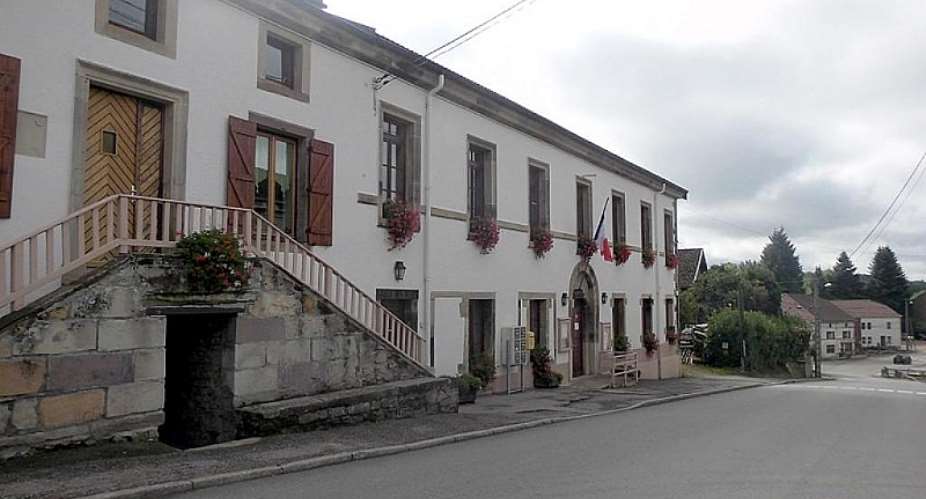Mayors from rural communes across France issued a collective statement Sunday urging citizens in rural communities to speak up about the challenges they face living in the countryside.
"We are not the yellow vests, but we share some of the same problems and demands that they're asking for," says Michel Fournier, mayor of Voivres, a small town of 300 inhabitants in Eastern France.
Fournier, who is also the vice-president of the Association of rural mayors of France signed a public appeal Sunday with several of his counterparts, urging citizens in rural communities to come forward with their concerns.
"Rural areas are not the same as towns and the government's policies cannot be the same," he told RFI Monday, in reference to the controversial fuel tax that sparked the "yellow vest" movement.
"The government was proposing we use our bikes to cut carbon emissions; but when you have a distance of 30km to make and it's -5C outside, riding a bike is a joke," said Fournier.
The movement that began as a backlash against high fuel prices--before snowballing into an all-out attack on the French government, shows signs of running out of steam into its fifth week.
Yet its concern about social inequity has resonated with people in rural areas, who have long felt neglected by successive governments.
What about rural France?
"Every government since 2010, has done nothing to address the needs of the countryside, everything is mapped out for towns," continues Fournier.
"There are no services, no reflection about what is needed; everything is centralized in the towns. It is as if France is no more than 30 big towns."
Fournier was speaking on the sidelines of a mayoral conference, in which he said there was no internet connection.
"It is completely unfathomable that even today telephone networks still do not reach here, and that the government has done nothing to make operators come."
The unequal distribution of services has notably had an impact on access to good-quality health services.
"My wife has been asking to see an optician for ages, but the earliest appointment she can get is in July 2019," says Fournier.
These social disparities have led many people in rural areas to feel abandoned. "The result is that the vote of the far right is now gaining traction in rural communities," comments Fournier.
Listening to the right people
Another bone of contention is the government's plan to abolish council tax (taxe d'habitation) for 80 percent of households, which mayors argue would deprive them of valuable income for services.
Although the government has promised to make up for the shortfall, mayors are far from convinced.
"Today, no one trusts anyone," he added.
Further south, in the region of Correze, mayor Jean Boinet is gearing up for the next phase of Sunday's public appeal.
"We will be compiling a record of the public's experience of living in the countryside. They will be able to leave messages, complaints, at our town hall and we will transmit them to the government of President Emmanuel Macron to examine," Boinet told RFI.
Social inequality, purchasing power, transport, are just a few of the issues likely to be addressed.
"Right now, authorities are listening to advisors who have never stepped outside of Paris. It's time they listen to us, because mayors are in direct contact with local people," he said.





 2024 elections: Resign if you can't be faithful to party - Sagnarigu NDC PC desc...
2024 elections: Resign if you can't be faithful to party - Sagnarigu NDC PC desc...
 Five arrested, remanded over alleged murder of two police officers at Transacco
Five arrested, remanded over alleged murder of two police officers at Transacco
 Tax exemptions better than incentives for churches – Tax Analyst tell Bawumia
Tax exemptions better than incentives for churches – Tax Analyst tell Bawumia
 Transport Minister sues Law Platform Editor for defamation
Transport Minister sues Law Platform Editor for defamation
 Voter registration: Police arrest NPP Treasurer for Mpohor for registering minor
Voter registration: Police arrest NPP Treasurer for Mpohor for registering minor
 "This nonsense must stop" — Lawrence Tetteh vows to march to Jubilee House over ...
"This nonsense must stop" — Lawrence Tetteh vows to march to Jubilee House over ...
 2024 elections: “If indeed you stand for peaceful elections the time is now for ...
2024 elections: “If indeed you stand for peaceful elections the time is now for ...
 I have the attributes to be president of this country — Bernard Monarh
I have the attributes to be president of this country — Bernard Monarh
 Cecilia Dapaah saga: ‘Turf war’ between AG, EOCO, OSP indicates they’re not ‘cor...
Cecilia Dapaah saga: ‘Turf war’ between AG, EOCO, OSP indicates they’re not ‘cor...
 Ghana will become the first African country to embrace blockchain-powered gover...
Ghana will become the first African country to embrace blockchain-powered gover...
